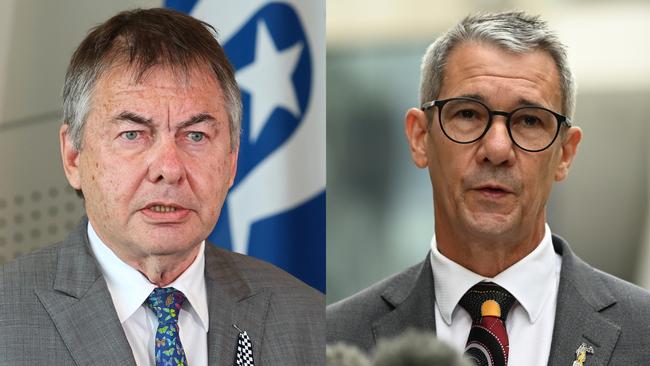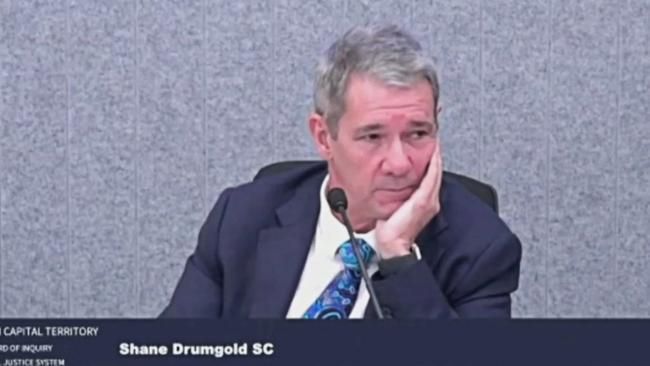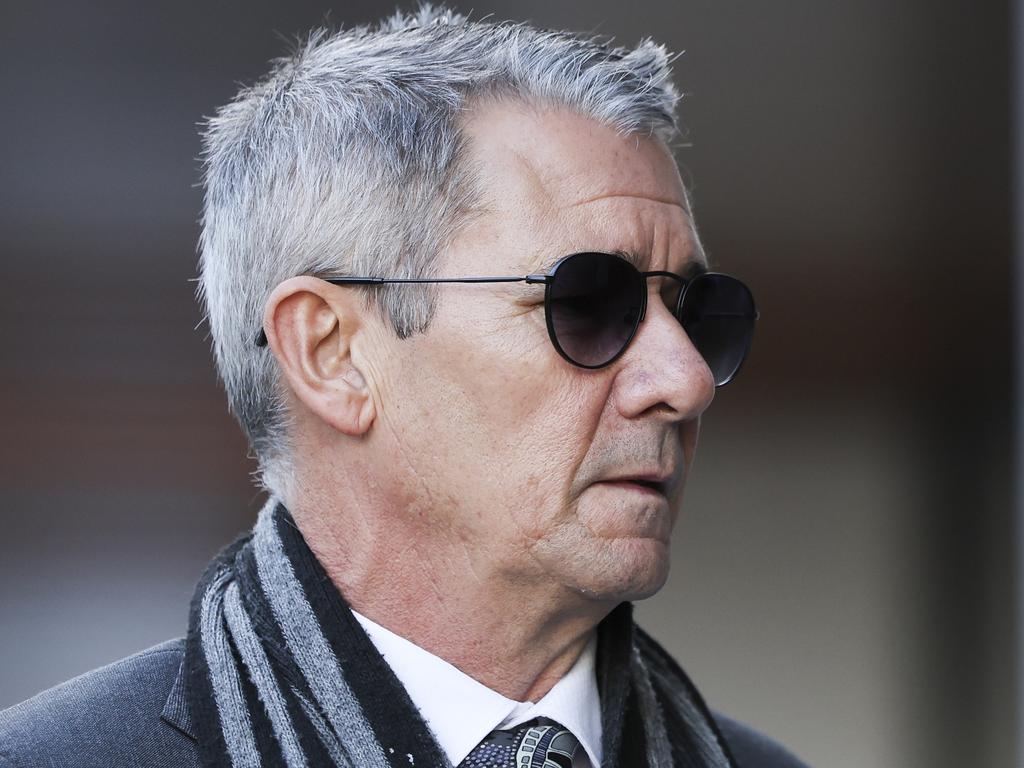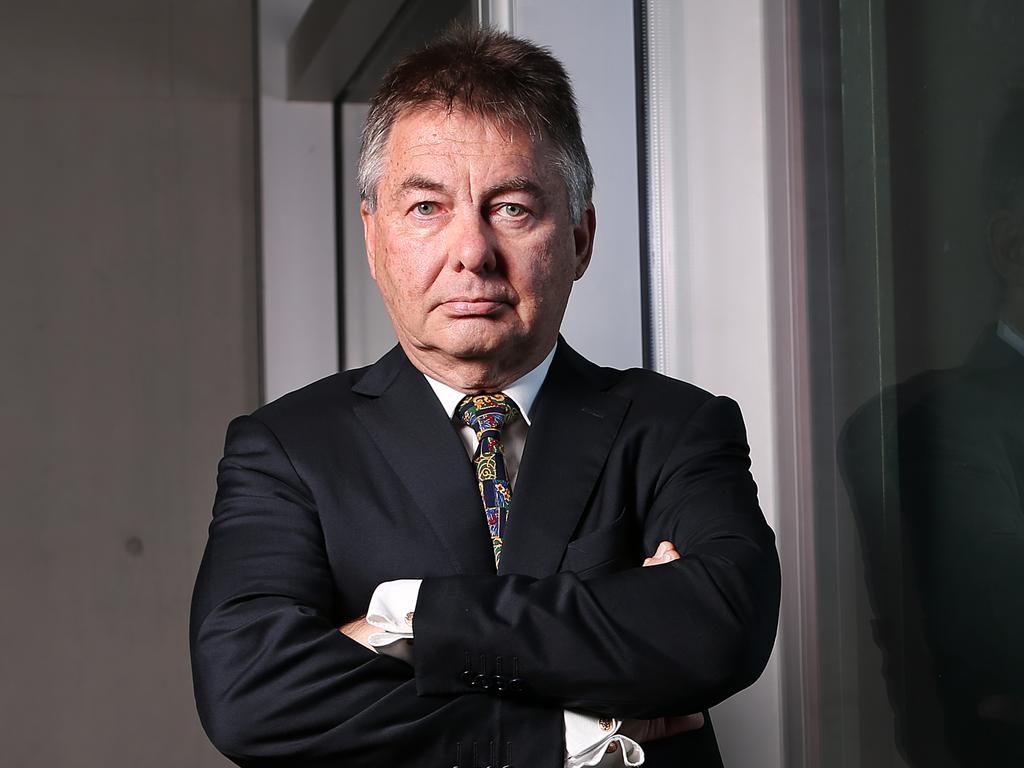Shane Drumgold fails in bid to scrap ‘irrelevant’ evidence of Walter Sofronoff
The evidence from Walter Sofronoff KC explains why he engaged with the media throughout an inquiry into Shane Drumgold’s conduct while prosecuting Bruce Lehrmann’s rape case.

Former ACT chief prosecutor Shane Drumgold has failed in a bid to strike out evidence from Walter Sofronoff KC explaining why he engaged with the media throughout an inquiry into Mr Drumgold’s conduct while prosecuting Bruce Lehrmann’s rape case, with a Supreme Court judge ruling that the evidence could go some way to clarifying how contact with the press could have been “necessary or convenient for the fair and prompt conduct of the inquiry.”
Mr Drumgold objected to parts of an affidavit sworn by Mr Sofronoff in which he says he informed a solicitor that he planned to make himself available to journalists throughout the inquiry to answer questions, and that “his interest was to ensure the accurate coverage of the work of the inquiry so far as he was able to do so.”
The affidavit also reveals that The Australian’s columnist Janet Albrechtsen contacted Mr Sofronoff after having received the inquiry’s final report from him under embargo, to alert him to the fact that she and a colleague had obtained the report from another source and planned on publishing the following day.
Mr Drumgold launched legal action against the Sofronoff inquiry and the ACT government last year, challenging findings in the report that he engaged in serious malpractice and grossly unethical conduct in Mr Lehrmann’s trial, which led to his termination as the DPP.
After Mr Sofronoff’s report was given to The Australian and the ABC under embargo, Mr Drumgold said he had been denied procedural fairness, alleging that Mr Sofronoff failed to comply with s. 17 of the ACT Inquiries Act, which provides that board members must not provide inquiry documents to others or communicate inquiry information except under provisions provided by the act.
As part of these proceedings, Mr Drumgold is seeking a declaration that the report and decisions are invalid. Mr Sofronoff denies the allegations against him.
With the matter set to be heard over three days next week, Mr Drumgold had made attempts to have parts of Mr Sofronoff’s sworn affidavit deemed inadmissable. However Justice Stephen Kaye has rejected all of Mr Drumgold’s objections bar one, and upheld the bulk of Mr Sofronoff’s affidavit on the basis of relevance.
“I am not persuaded, at this point, that the contents of paragraphs 10 to 45 of the affidavit of Sofronoff are irrelevant. At the least, they give some content to the reason, given by Sofronoff, as to why, in the course of the inquiry in the present case, he actively engaged with the media and provided documents and other material to them,” Justice Kaye wrote in the judgement.
“In essence, they provide some background to the explanation given by Sofronoff as to why he considered that his conduct, in providing the documentation and information to the media, constituted an exercise by him of a function under the Act (for the purposes of s. 17) and as to why he considered it necessary to engage in that manner with the media for the ‘fair and prompt conduct of the inquiry’.”

Mr Drumgold objected to parts of the affidavit that explained how Mr Sofronoff “recognised that the subject matter of the inquiry concerned public confidence in the criminal justice system” and he was of the view “that appropriate engagement with the media would be essential to the performance of the inquiry’s functions.”
He objected to one paragraph, on the basis that it is “vague and meaningless”, in which Mr Sofronoff explained why it was important for journalists to understand “the real issues of the inquiry.”
“The paragraph is relevant, because it provides some explanation as to why Sofronoff considered it necessary to provide some detailed information to the media as to the proceedings before the inquiry. As such, evidence is not sought to be adduced as opinion evidence,” Justice Kaye wrote in the Judgement. “The passage in question is clear, and is not ‘vague and meaningless’, as contended by the plaintiff.”
Justice Kaye also upheld a paragraph explaining how The Australian came to publish the report prior to it being made public by government, however said the relevance of the paragraph “is, at best, marginal”.
“In paragraph 87, it is stated that, on 3 August 2023, The Australian newspaper published a story, dealing with the content of the report of the Inquiry, which the government had not then published,” the Judgement reads.
“It is then deposed that, on the previous evening, Ms Albrechtsen had contacted Sofronoff to inform him that she and her colleague had obtained a copy of the report from another source and that, using that source, they would publish a story the following day. That section of the affidavit is objected to by the plaintiff on the basis that it contains inadmissable hearsay.
“In response, the first defendant has stated that the evidence is sought to be adduced for a non-hearsay purpose. The relevance of the evidence on that basis is, at most, marginal.
“With some reservation, I would uphold its admissibility, on the basis that it may explain why Sofronoff did not, apparently, take any steps in relation to the publication by The Australian newspaper of the report before it had been published by the government.”

Justice Kaye struck off one paragraph of the affidavit on the basis that it was irrelevant and “argumentative”, but did not explain what the paragraph contained.
The ACT Supreme Court last Wednesday heard Mr Drumgold’s lawyer Dan O’Gorman SC wished to submit evidence of text messages, phone calls and emails between Mr Sofronoff and Ms Albrechtsen, which he claimed spoke to the “unreasonableness” of their relationship while the inquiry was being conducted.
“We say that the apprehended bias arises in this way – that in the months leading up to and during the inquiry, Ms Albrechtsen was writing numerous articles which were critical of Mr Drumgold,” Mr O’Gorman told the court.
He continued: “A comparison is made of communications Mr Sofronoff had with Ms Albrechtsen in particular and with other journalists. For example, we point out that Mr Sofronoff made 65 telephone calls between Feb 9 and July 31, and we outline how 55 were with The Australian and 10 with all other journalists.”
“There was a total of 9 hours and 57 minutes (of phone calls) – 7 hours and 33 minutes with The Australian, therefore other journalists, one hour and 34 minutes,” he said.
“During the actual public hearings, Mr Sofronoff made 10 calls to The Australian (journalists), eight to Ms Albrechtsen.”
Mr O’Gorman last Wednesday also said he would seek to cross-examine Mr Sofronoff when the matter is heard. However Justice Kaye seemed extremely hesitant to permit the cross-examination.
“I’d be very loathe to give leave to cross examination unless it’s relevant,” he said at the time. “It’s not a fishing expedition, this is not an inquiry.”
The matter will be heard on February 13, and is expected to last for three days.







